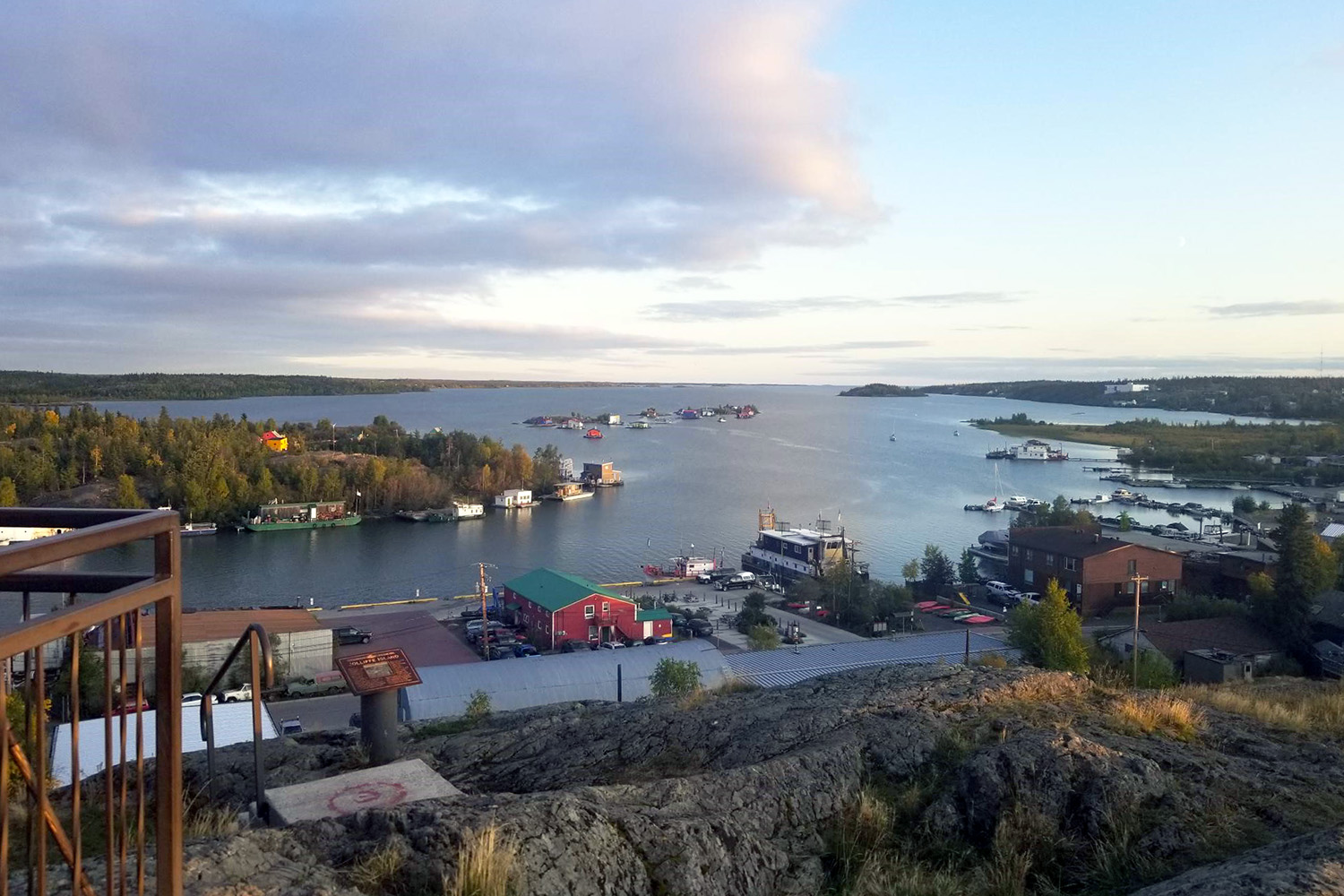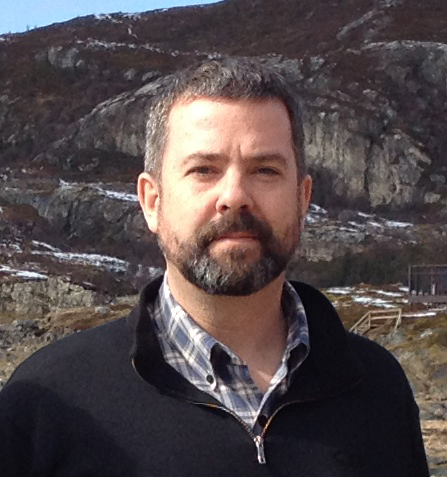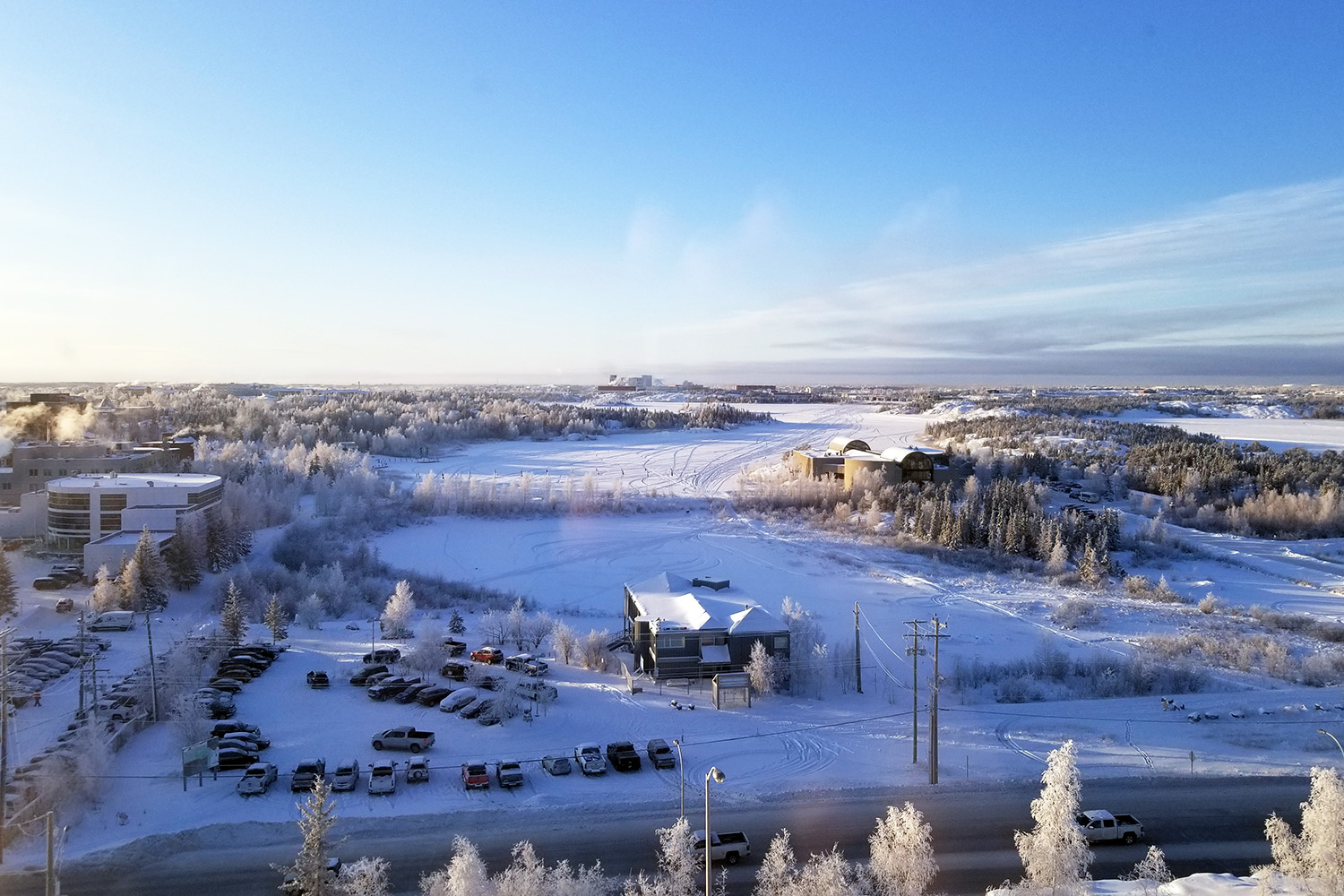
Engaging Northern expertise strengthens ecological science
Doug Clark sees a future that doesn’t include people like him, and he’s okay with that.
By Michael Robin
“People like me will be dinosaurs, that is, outside researchers coming up to do research,” he said. “Northerners will do it for themselves.”
Clark is an associate professor with at the University of Saskatchewan School of Environment and Sustainability. He has conducted research in the North for more than 25 years, living there for about a third of this time (he is also an adjunct professor with Yukon College and Queen’s University).
It’s given him an appreciation and respect for Northerners’ knowledge, traditions and solutions. Amid the sturdy shoes of field biologists and polished dress shoes of visiting southerners, Clark’s footwear stands out: a pair of moccasins with beadwork depicting a grizzly bear on the top of each. Bears are Clark’s research specialty.
“I’d never seen a grizzly bear depicted on moccasins before,” he said, explaining they were made in the Yukon by elder Kathy Birckel of the Champagne & Aishihik First Nation.
“I wear them when I’m invited to the North to honour the Northerners who have taught me and helped me along the way.”
Clark was one of the speakers at an event in Yellowknife in late November 2019 organized by Genome Prairie aimed at exploring ways of using genomics research to benefit the North. The aim is to encourage Northern proposals and partnerships for the 2020 Large-Scale Applied Research Project (LSARP), Genome Canada’s flagship funding program.
Historically, he explained, research in the North has suffered from two main shortcomings: lack of engagement with Northerners, and a flawed concept called “scientific management.” The concept was built on the idea of applying scientific insights to determine management outputs.
“It works really well when you’re running a factory making widgets in the 1920s,” Clark said, explaining the idea spread to resource management institutions across the continent and world-wide. “It has a near-perfect track record of failure when applied to complex problems with social and ecological dimensions.”
Clark is intrigued by the Genome Canada’s GE3LS program (Genomics and its Ethical, Environmental, Economic Legal and Social Aspects) to address those dimensions and integrate the knowledge and skills of Northerners in the research enterprise. While natural sciences and social sciences have often been pursued on separate tracks, GE3LS strives to bridge the two.
“I think the more integrated look possible with the GE3LS framing is much more likely to be productive, particularly in the North,” Clark said. “It’s a more holistic way of doing things and it’s the way Northerners themselves approach such problems.”
Clark said that Northerners, being far from Ottawa, with small populations scattered over immense landscapes, have developed unique solutions. Their polycentric government models point to an antidote to political polarization. Small, nimble scientific groups, mainly led by female researchers, are investigating questions relevant to Northerners. “Northern scientific sovereignty,” a term Clark credits to Ashlee Cunsolo, a Memorial University of Newfoundland professor based in Labrador, is spreading across the North.

It’s a development that’s overdue, said Andrew Applejohn, Senior Science Advisor for the Government of the Northwest Territories.
“There’s a long history in Northern Canada of science being conducted in the North by people who live in the south, and I think a long history of a failure to communicate the results of research back to communities,” he said.
Increasingly, there are legal reasons to engage with Northern governments. Settled land claims include co-management rights with Indigenous governments over resources. The territorial government has instituted regulations requiring researchers to get a permit to conduct work under various Acts such as those governing archaeology, wildlife, and forestry. Applejohn guesses this only captures about half of the activity – not due to malfeasance, but because people are simply unaware.
It’s a shame, he said, since researchers miss out on local knowledge.
“People that live in any community in this territory or others have a good sense of place, have a good sense of what’s happening around them,” he said. “If you want to talk to somebody about changes to permafrost and how it’s affecting roads, why don’t you talk to the guy that’s been driving the grader there for 30 years?”
Applejohn points to post-secondary institutions in all three territories that are redefining what it means to be a “highly qualified person” in the Northern context, recognizing the scientific method but also the immense value of traditional, cultural, and practical knowledge of the land. Yukon College is on the path to university status, Aurora College in Yellowknife is looking at becoming a polytechnic university, and Nunavut Arctic College is developing strategic partnerships.
“The colleges can help frame that conversation a little bit more effectively than it has been in the past,” Applejohn said. “I think there are going to be exciting changes coming.”
Engaging local talent for Northern research makes for safer, more productive projects. Applejohn recounts a large-scale energy research project he was involved with which cost about $60 million per winter – more than 90 per cent of which went to Northern contractors.
“Those were the people who knew how to operate in that kind of environment,” he said. “People who live in the Arctic know how to operate in the Arctic.”
Genome Canada has funded some research in the North, including an LSARP project launched in 2016 entitled BEARWATCH, Monitoring Impacts of Arctic Climate Change using Polar Bears, Genomics and Traditional Ecological Knowledge. A partnership among the governments of Nunavut, the Northwest Territories, and Queen’s University in Ontario, it monitored the impact of climate change in the Arctic using polar bears, genomics, and traditional ecological knowledge.
“BearWatch has very good support, with hunter-harvested carcasses,” Clark said.
Applejohn sees an important shift in the perspective of science in general and in the North in particular. Rather than bringing up a full team, researchers look partners that can provide ground truth – knowledge borne of long observation. It makes for better science.
“You can deliver a research program in the North with Northerners more cost effectively, safely, and actually learn more about what you’re studying than you would have if you’d imported your entire team.”

